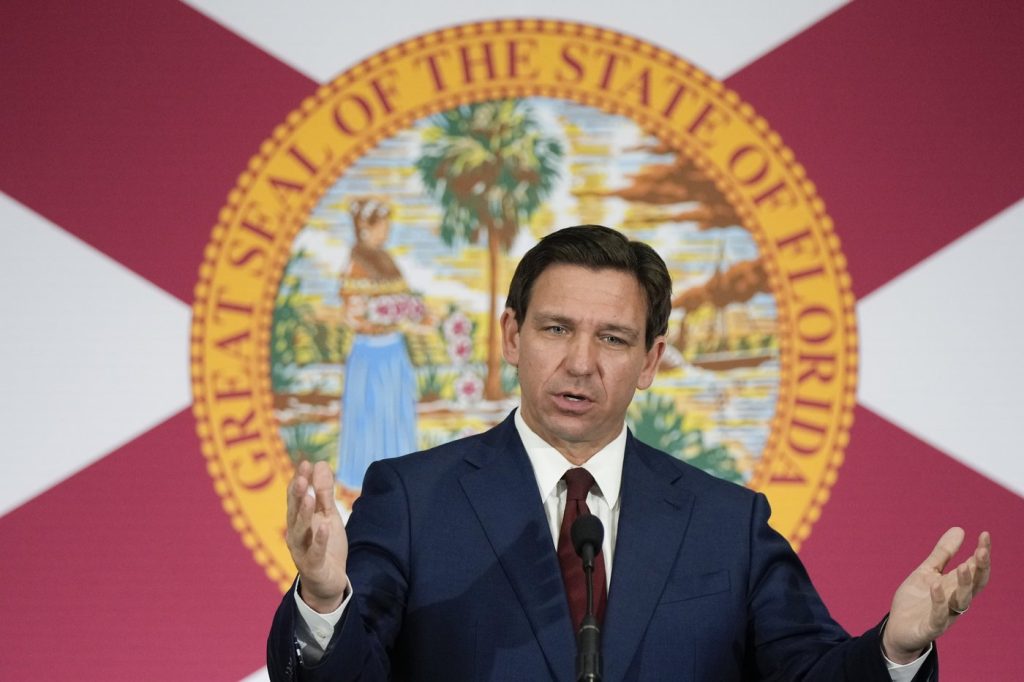TALLAHASSEE, Fla. (AP) — A federal judge has issued a ruling that prevents state officials from enforcing a law in Florida aimed at banning social media accounts for young children. This decision comes as a legal challenge to the law continues to progress. U.S. District Judge Mark Walker granted a preliminary injunction on Tuesday, blocking certain provisions of the law from taking effect.
The legislation, signed into law by Governor Ron DeSantis in 2024, is noted as one of the most stringent restrictions in the United States regarding social media use by minors. It seeks to prohibit social media accounts for individuals under the age of 14, while also mandating that parental permission is necessary for those aged 14 and 15 to create accounts.
In his order, Judge Walker expressed that the law is "likely unconstitutional." Nonetheless, he recognized that both parents and lawmakers possess "sincere concerns" regarding the potential negative impact of social media on children. Walker emphasized that restricting social media platforms from allowing specific age groups to hold accounts imposes a direct constraint on these youths' rights to access and engage in communication.
On the same day, another federal judge in Atlanta heard arguments concerning a 2024 Georgia law that requires age verification for social media accounts and mandates parental permission for children under 16. Similar to the Florida law, NetChoice, the internet trade group challenging the law, argued that the Georgia legislation violates the principles of free speech, is overly vague, and imposes excessive burdens on users.
While Judge Walker aligned with the industry groups in asserting that the Florida law impedes free speech, he did permit a provision requiring social media platforms to deactivate accounts for children under 16 if requested by a parent or guardian. This nuanced decision indicates a balance between recognizing parental authority and the necessity of upholding constitutional rights.
Public concern over the effects of social media on young users has surged among both parents and teenagers. Supporters of such legislative measures believe that these laws are crucial in addressing the "explosive" growth of social media usage among minors, which research indicates correlates with heightened levels of depression and anxiety among youth.
Matt Schruers, President and CEO of the Computer & Communications Industry Association (CCIA), expressed satisfaction with the judge's decision to block the Florida law. He stated that the ruling confirms their argument that Florida's statute infringes upon the First Amendment rights of minors and adults alike by restricting access to lawful content online. He remarked that they are hopeful for a permanent resolution that would invalidate the statute based on constitutional grounds.
In defense of the law, a spokesperson for Florida Attorney General James Uthmeier underscored the state’s commitment to safeguarding children from the potential harms posed by social media platforms. Uthmeier's press secretary, Jae Williams, highlighted that the law was created based on the mandate of Florida parents and emphasized the dangers associated with social media, arguing that these platforms do not have a constitutional right to engage children in their products.
In Atlanta, NetChoice attorney Jeremy Maltz articulated that the Georgia law would unduly infringe on minors' freedom of speech. He raised a critical analogy by suggesting that requiring minors to provide verification before sharing their creative or political expressions resembles an unreasonable demand. Judge Amy Totenberg, while not making an immediate ruling on the case, voiced skepticism regarding the legitimacy of the Georgia law based on previous rulings against similar legislative attempts in other states, seeking clarification on what differentiates the current situation from past cases.
Deputy Attorney General Logan Winkles for Georgia defended the law by comparing its age verification requirement to preventing minors from accessing bars, framing the issue as one not strictly about speech but rather about ensuring safety on social media platforms. He argued that the law's implementation could potentially involve cost-efficient methods of verification.
In summary, the legal discourse surrounding social media regulations in Florida and Georgia highlights the complex interplay between parental oversight, constitutional rights, and the rapidly evolving landscape of digital communication among youth.












